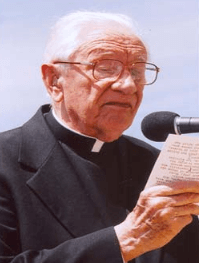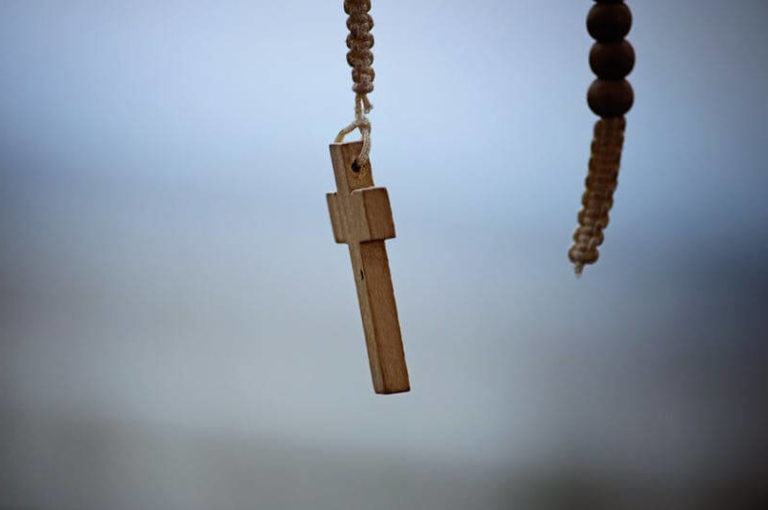
Society of Christ Father Franciszek Okroy, who served some three decades at Holy Rosary in Fells Point before dying in 2006, was among the many heroic clergymen who faced unbelievable suffering at Dachau.
Today, the 73rd anniversary of the American liberation of Dachau, seems an appropriate time to remember Father Okroy’s ordeal and to pray that the world will never forget the sacrifices of these holy men.
In a 1983 interview with the Catholic Review, Father Okroy recalled being a young Polish seminarian when World War II broke out. While serving in a Polish marine unit, he was captured by the Germans and sent to Dachau, located not far from Munich, Germany.
Upon entering the concentration camp, Father Okroy said, Dachau inmates were told they had no rights. They could be killed at any time and all they had to do was work, he said.
The priest remembered the motto that was inscribed on the gates of the concentration camp: “Arbeit macht frei,” “Work makes you free.”
Among the punishments some priests faced at the camp was having their hands tied behind them and then being hung by their hands from the shower room wall for an hour, Father Okroy said.
Some died from the torture, he said, while others “died from humiliation.” Others died from being used by the Nazis in medical experiments.
Father Okroy remembered an influx of 5,000 Russian prisoners of war, who he said were systematically executed in groups of 100 per day.
The priest told the Review that he survived the camp by considering the wartime situation and all the lives being lost at the front. He viewed the camp as a “big monastery,” he said. The hard work and lack of food took on the nature of monastic mortification for the young seminarian, the Review reported.
“You can be in prison and you can be free at the same time,” Father Okroy said.
The Polish priest told the Review that the wood strips in the windows separating the glass panes at Dachau seemed like crosses. Every time he looked out a window, he was reminded of the sign of redemption.
“A daily routine meant to humiliate the prisoners by which they had to doff their caps before the guards on the way to work was turned into a spiritual exercise by the priest and others for whom it signified tipping their hats to our Lord’s eucharistic presence in the nearest Catholic church,” the Review reported.
Father Okroy told the Review he believed he was in Dachau because it was the will of God. Consequently, he felt a certain peace.
Because of the large number of priests in the camp, Father Okroy said, he was able to receive Communion daily and have his confession heard whenever he wished.
The priest told the Review he “never felt so close to God” as in Dachau, where he witnessed terrible suffering.
“A hard life and sacrifice makes good Christians,” he said.
Click here to read a story and listen to a radio interview with a historian who has researched the clergy of Dachau extensively.


